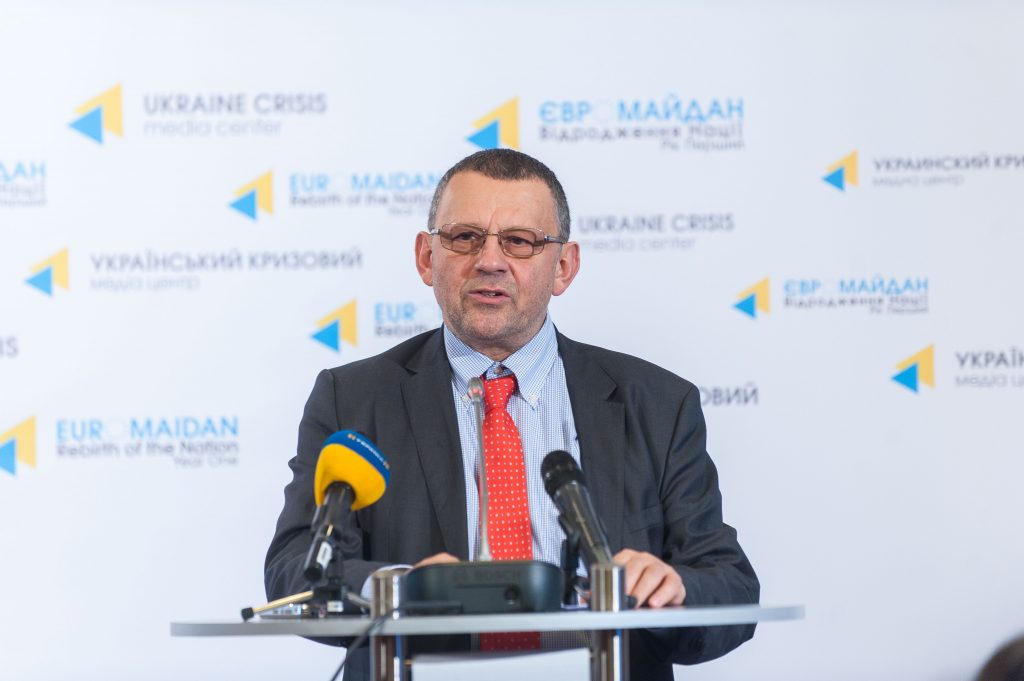Kyiv, December 1, 2014. The European Advisory Mission to Ukraine was launched today in Kyiv. The Ukrainian government has requested EU support when it comes to the objective of civilian security, including rule of law, policing, protection of individual rights, and the court system. The EU mission will assist the Ukrainian government in these spheres, and will eventually consist of more than 100 EU professionals and 75 local experts. This was stated at Ukraine Crisis Media Center by Kálmán Mizsei, the Head of the European Advisory Mission to Ukraine.
The European Advisory Mission to Ukraine is responding to the demands of the Ukrainian government when it comes to implementing key reforms in the civilian security sector in the context of the Association Agreement. Even though the mission is headquartered in Kyiv, its mandate includes all of Ukraine and therefore the mission will be working country-wide. The European Advisory Mission will work with the relevant Ukrainian ministries and agencies, as well as cooperating with civil society actors in the country. “Our aim is to assist Ukraine in upholding European values,” stated Mizsei. This will be done “in close coordination with EU member states, so as to ensure coherence of our action and of the international community at large and in support of Ukraine and the international law.”
The advisory mission promises to take the suggestions and concerns of the Ukrainian government, personalities, and civil society organizations seriously. “We will listen to our Ukrainian friends, the government, and the president, as they are in a difficult situation,” said Mizsei. The foreign experts who make up the advisory mission are well-versed in Ukraine’s contemporary challenges and priorities, but will take the input of Ukrainians seriously when it comes to implementing reforms. “We do understand the Ukrainian context to a great extent, but nothing replaces cooperation on the strategic and technical level,” he added.
Mizsei says that Ukraine should be re-assured that they are not the first state in recent history to undergo similar challenges and the pressing need for fast reforms. Most of the central and eastern European states that are now members of the European Union already went through this process during the 1990s. Despite challenges, these countries were better off in the long-run because of their persistence and determination to become full-fledged members of the European community. “This will be a challenging task, there will be many obstacles, but this is the time to act,” stated Mizsei. Kyiv must shed its Soviet past and work towards a new future.
“We want to help transform the country from its Soviet inheritance to a more modern and functioning European society.”




